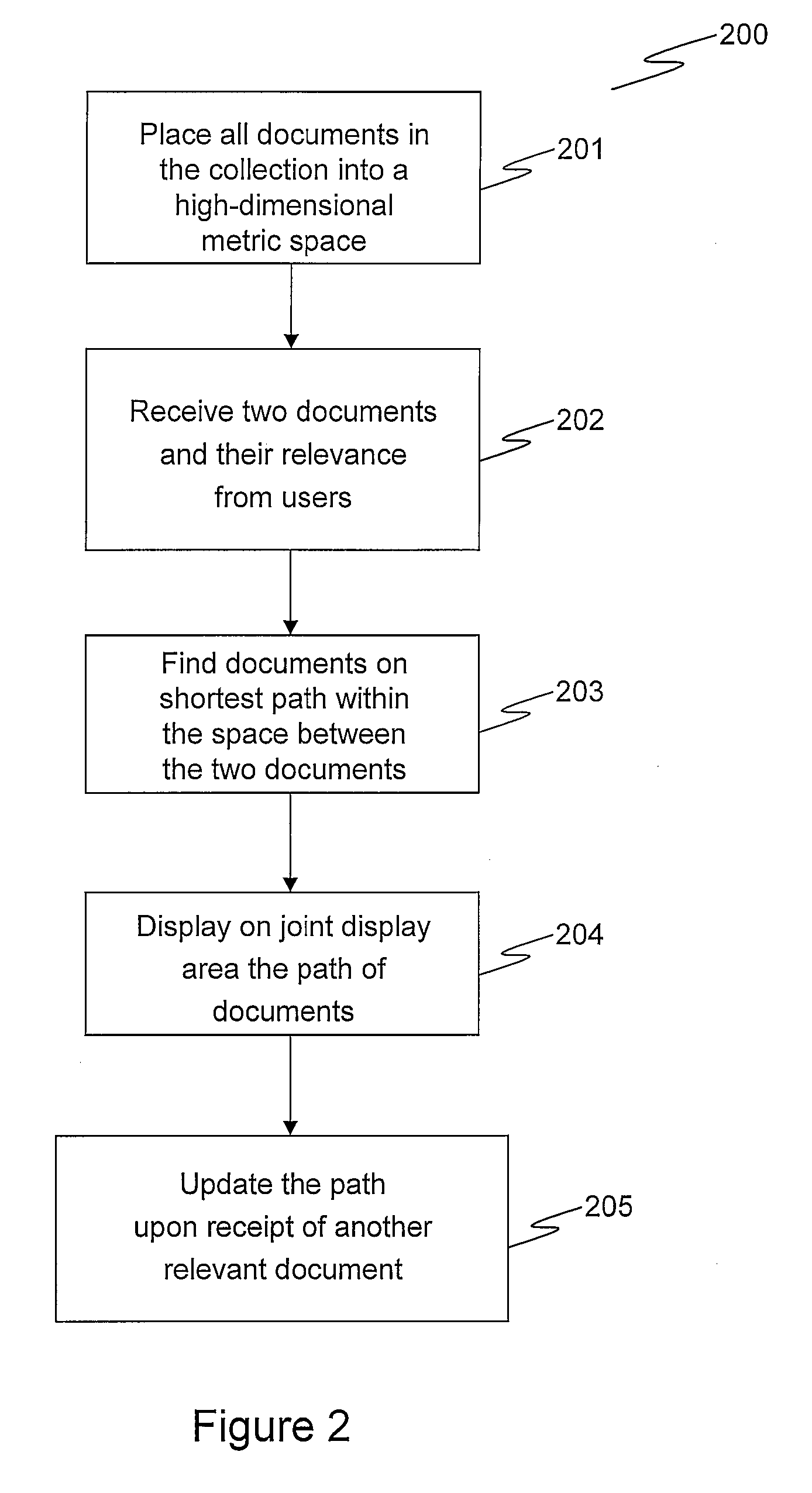Systems and methods for collaborative exploratory search
- Summary
- Abstract
- Description
- Claims
- Application Information
AI Technical Summary
Benefits of technology
Problems solved by technology
Method used
Image
Examples
example 1
[0037]In the very simplest case, multiple searchers sitting in front of their respective terminals, all execute multiple queries on an ad hoc retrieval system in an attempt to satisfy their collective information need. One user's activity is as follows:
[0038](1) The user enters a query into the system;
[0039](2) The results come back;
[0040](3) The user reads the top N documents, selects all the relevant ones and discards the non-relevant ones;
[0041](4) The user then modifies or creates a new query (though still in support of the same general information need) and returns to step (1). This is repeated M times.
[0042]The problem now is that, with conventional search systems, if two users enter the same query during step (1), the second user will not be aware that the first user has already executed this query. Thus when the second user reads the top N documents, he / she will be duplicating the efforts of the first user. This is avoidable if the users ask each other if a query has already...
example 2
[0044]In a situation similar to the one above, the inventive collaborative search system can be made to remember not just previously executed queries, but previously read documents. For example, each of the two searchers on the team executes a different query. There may be documents in the collection that rank highly (in the top N) for both queries. Whether or not these documents are relevant, if another user has already examined them, there is little need for the second user to do so as well. The second user can then dig deeper, or further down the ranked list, in a shorter amount of time. Accordingly, an embodiment of the inventive search system informs a user whether the relevance of a specific document found by that user has already been determined by another user. If so, the user does not need to re-evaluate the relevance of the found document.
[0045]For example, a team of two searchers is doing a collaborative exploratory search on the consumer video market. They want to find o...
example 3
[0046]The previous two examples are useful, but they do not demonstrate the full power of an embodiment of the inventive collaborative exploratory framework. They address efficiency issues, but the inventive system also increases the overall effectiveness of the search process, allowing users to find relevant documents that they otherwise would not have ever found on their own.
[0047]In the third example, two users use the inventive system to perform their searches, independently, using two different queries (e.g. “cable providers” and “satellite systems” from the previous example). In an embodiment of the inventive system, the users may use two different ranking engines or formulae to order the search results. Each user is scrolling down vertically through the list of documents, looking for items that are relevant.
[0048]When the first user finds a relevant document, he flags it. He then continues scrolling down the list, looking for more relevant items. A short time later, the secon...
PUM
 Login to View More
Login to View More Abstract
Description
Claims
Application Information
 Login to View More
Login to View More - R&D
- Intellectual Property
- Life Sciences
- Materials
- Tech Scout
- Unparalleled Data Quality
- Higher Quality Content
- 60% Fewer Hallucinations
Browse by: Latest US Patents, China's latest patents, Technical Efficacy Thesaurus, Application Domain, Technology Topic, Popular Technical Reports.
© 2025 PatSnap. All rights reserved.Legal|Privacy policy|Modern Slavery Act Transparency Statement|Sitemap|About US| Contact US: help@patsnap.com



